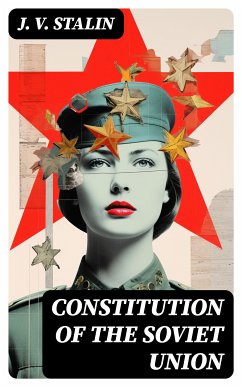The "Constitution of the Soviet Union," authored by J. V. Stalin, is a foundational document that encapsulates the legal and ideological framework of the Soviet state. Written in a period of intense political transformation, the text combines legalist prose with revolutionary fervor, reflecting the ambitions of a socialist utopia. It articulates the principles of socialist governance, the rights of citizens, and the structure of state institutions, while also illuminating the tensions between theory and practice within a totalitarian regime. The literary style is marked by a blend of didacticism and ideological assertion, resonating with the socio-political climate of the early 1930s as Stalin consolidated power. J. V. Stalin, a pivotal figure in the history of the Soviet Union, was deeply influenced by Marxist-Leninist ideology and the tumultuous history of revolutionary thought. His leadership shaped the document's drafting, as it was intended to propel the Soviet Union into the forefront of socialist governance. Stalin's background as a revolutionary and administrator offered him unique insights into the aspirations and contradictions inherent in developing a revolutionary state, making the constitution both a manifesto and a tool of political consolidation. For scholars and readers interested in the intersection of law, politics, and ideology, Stalin's "Constitution of the Soviet Union" is an essential text. It not only informs our understanding of early Soviet governance but also serves as a historical lens through which one can examine the aspirations and realities of a regime that sought to reshape society. Its significance extends beyond its immediate context, offering valuable insights into the enduring legacy of constitutionalism in totalitarian regimes.
Dieser Download kann aus rechtlichen Gründen nur mit Rechnungsadresse in A, B, BG, CY, CZ, D, DK, EW, E, FIN, F, GR, H, IRL, I, LT, L, LR, M, NL, PL, P, R, S, SLO, SK ausgeliefert werden.









